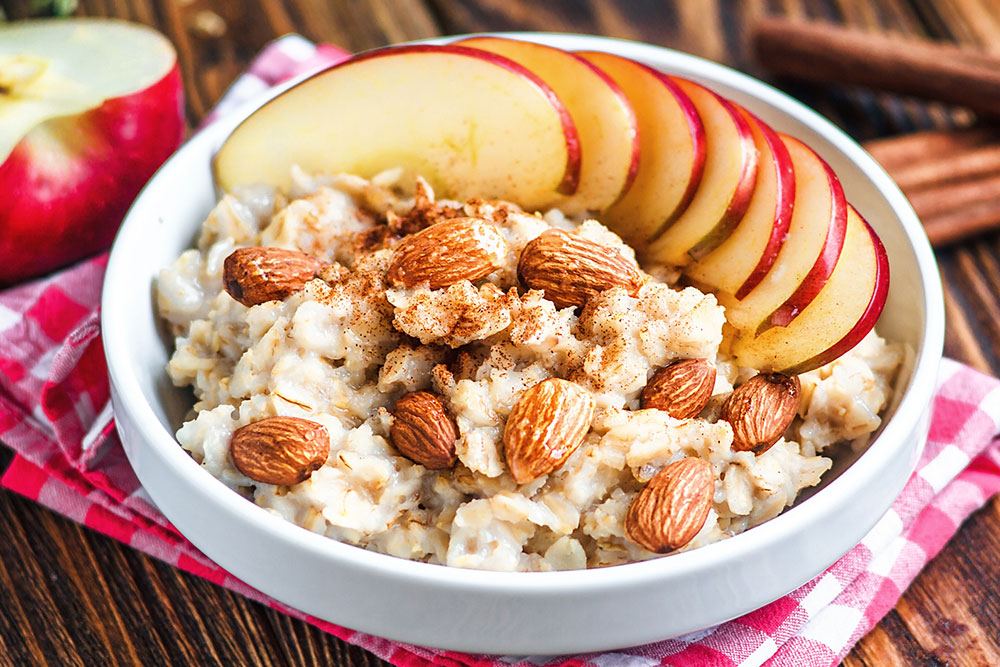
5 easy 3-minute breakfast ideas
Breakfast is the most important meal of the day and generally it is the most overlooked too. Having a hearty breakfast lends a great start to the day but only if the right food is chosen. Too heavy and one risks feeling uneasy and sleepy; too light and the mid-morning cravings start kicking in quickly. Combining these healthy ingredients into one satisfying breakfast looks like a good start to the day.
Here are some 3-minute easy breakfast recipes to kick-start the day.
Greek yogurt parfait
Ingredients:
1 cup Greek yogurt (full-fat or low-fat)
1/2 cup granola (choose a variety with low sugar)
1/2 cup fresh berries (pick from strawberries, blueberries, or raspberries)
1 tablespoon honey (optional)
Recipe:
Layer the Greek yogurt, in a glass or bowl.
Add a layer of granola on top.
Add a layer of fresh berries.
Drizzle with honey if desired.
Repeat the layers if you prefer a larger portion.
Nutritional values:
Calories: Approximately 300-350
Protein: 15-20 grams
Carbohydrates: 40-45 grams
Fiber: 4-6 grams
Fat: 10-15 grams
Avocado toast
Ingredients:
2 slices whole-grain bread
1 ripe avocado
Salt and pepper to taste
Optional toppings: Sliced tomatoes, poached egg, or red pepper flakes
Recipe:
Toast the whole-grain bread until crispy.
While the bread is toasting, mash the ripe avocado and season with salt and pepper.
Spread the mashed avocado evenly on the toasted bread.
Add optional toppings if desired.
Serve immediately.
Nutritional values (without toppings):
Calories: Approximately 200-250
Protein: 4-6 grams
Carbohydrates: 20-25 grams
Fiber: 7-9 grams
Fat: 12-15 grams
Overnight oats
Ingredients:
1/2 cup rolled oats
1 cup milk (dairy or non-dairy)
1 tablespoon honey or maple syrup
1/2 teaspoon vanilla extract
Optional toppings: Chopped nuts, sliced banana, or berries
Recipe:
In a jar or container, combine the first four ingredients.
Stir well and seal the container.
Refrigerate overnight.
In the morning, give it a good stir.
Add the optional toppings if needed and enjoy.
Nutritional values (without toppings):
Calories: Approximately 250-300
Protein: 8-10 grams
Carbohydrates: 40-45 grams
Fiber: 4-6 grams
Fat: 5-7 grams
Peanut butter banana smoothie
Ingredients:
1 ripe banana
2 tablespoons peanut butter
1 cup milk (dairy or non-dairy)
1 tablespoon honey or maple syrup (optional)
Ice cubes (optional)
Recipe:
Place the ripe banana, peanut butter, milk, honey, and ice cubes in a blender.
Blend until smooth and creamy.
Pour into a glass and enjoy.
Nutritional values (without honey):
Calories: Approximately 300-350
Protein: 8-10 grams
Carbohydrates: 35-40 grams
Fiber: 4-6 grams
Fat: 15-18 grams
Peanut butter and banana wrap
Ingredients:
1 whole-grain tortilla
2 tablespoons peanut butter
1 ripe banana, sliced
A drizzle of honey (optional)
Recipe:
Spread peanut butter evenly on the whole-grain tortilla.
Place the banana slices on the buttered tortilla.
Drizzle with honey if desired.
Roll up the tortilla, cut it in half, and enjoy.
Nutritional values (without honey):
Calories: Approximately 300-350
Protein: 8-10 grams
Carbohydrates: 45-50 grams
Fiber: 7-9 grams
Fat: 12-15 grams







